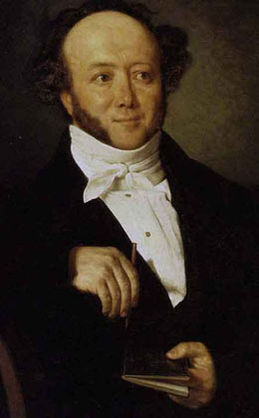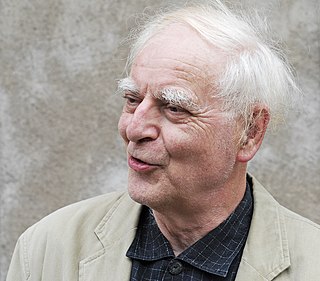
Erich Maria Remarque was a 20th-century German novelist. His landmark novel All Quiet on the Western Front (1928), about the German military experience of World War 1, was an international best-seller which created a new literary genre, and was subsequently made into the cinema film All Quiet on the Western Front (1930).

Albert Bitzius was a Swiss novelist, best known by his pen name of Jeremias Gotthelf.

Carl Friedrich Georg Spitteler was a Swiss poet who was awarded the Nobel Prize for Literature in 1919 "in special appreciation of his epic, Olympian Spring". His work includes both pessimistic and heroic poems.

Carl Hilty was a Swiss philosopher, writer and lawyer. He famously said "Peace is only a hair's breadth away from war." Although a Christian he was no pacifist but expected the coming world war and was also a high officer in Swiss Army. He was married to German wife Johanna Gaertner. Hilty was a spokesman for women's rights to vote and to be elected, many decades before the subject became mainstream. Hilty argued that Switzerland, as a nation-state comprising several nationalities and languages, had a unique mission of demonstrating that a nation-state could transcend tribal tendencies.

Peter Bichsel is a popular Swiss writer and journalist representing modern German literature. He was a member of the Gruppe Olten.
Erica Pedretti, née Schefter is a Swiss author and artist.
Paul Nizon is a Swiss art historian and writer.
Georges Poulet was a Belgian literary critic associated with the Geneva School. Best known for his four-volume work Studies in Human Time, Poulet rejected formalist approaches to literary criticism and advanced the theory that criticism requires the reader to open his or her mind to the consciousness of the author. His work has had a lasting influence on critics such as J. Hillis Miller.

Friedrich Glauser was a German-language Swiss writer. He was a morphine and opium addict for most of his life. In his first novel Gourrama, written between 1928 and 1930, he treated his own experiences at the French Foreign Legion. The evening before his wedding day, he suffered a stroke caused by cerebral infarction, and died two days later. Friedrich Glauser's literary estate is archived in the Swiss Literary Archives in Bern.
Hermann Burger, was a Swiss poet, novelist and essayist. In his creative works Burger often focused on society's lonely outsiders and, increasingly, the inevitability of death. His virtuosity in applying literary styles and use of thorough research are significant features of many of his publications.

Adolf Muschg is a Swiss writer and professor of literature. Muschg was a member of the Gruppe Olten.

Hugo Loetscher was a Swiss writer and essayist.

Urs Jaeggi is a Swiss sociologist, painter, and author. From 1964 to 1993, he was a Professor of Sociology and Social Philosophy in Bern, Bochum, New York, and Berlin. He published numerous novels, short stories, essays as well as scientific books. He won the Ingeborg Bachmann Prize in 1981. He has participated in solo and group exhibitions since 1985. Presently he lives in Berlin and Mexico City.
Stéphanie Corinna Bille was a French-speaking writer from Switzerland.
Eveline Hasler is a Swiss writer. Born in Glarus, she studied Psychology and History at the University of Fribourg and worked as a teacher in St. Gallen. She has written both novels and children's books. Her literary estate is archived in the Swiss Literary Archives in Bern. Eveline Hasler lives in Ticino.
Lojze Kovačič was a Slovene writer. His novel The Newcomers is often considered one of the most important Slovene novels of the 20th century and has been translated into German, French, Spanish, and Dutch.

Otto F. Walter was a Swiss publisher, author and novelist, which is well known in the German language countries. Otto Friedrich Walter was the younger brother of Silja Walter, a Benedictine nun in the Fahr Abbey and also a popular writer.

Lukas Hartmann is a Swiss novelist and children's writer, who is well known in German-speaking countries. Married to the 2015 Swiss president Simonetta Sommaruga, he was Switzerland's "first husband" in 2015.
Hans Mühlethaler was a Swiss writer.

















